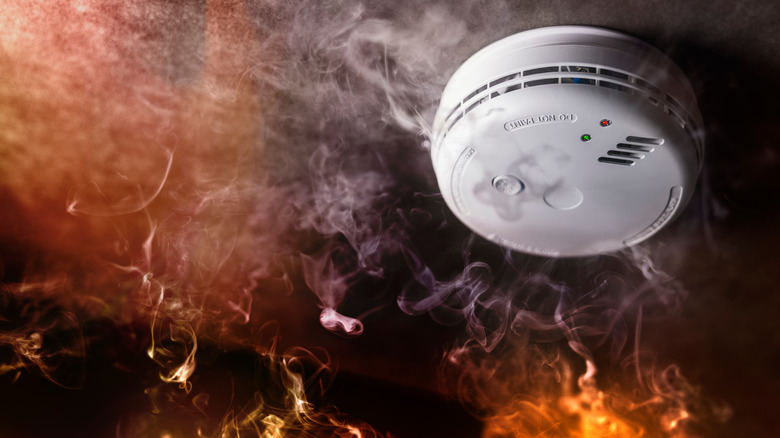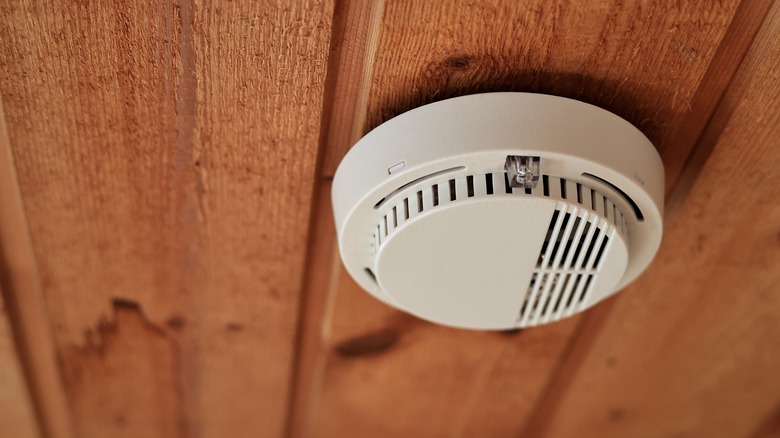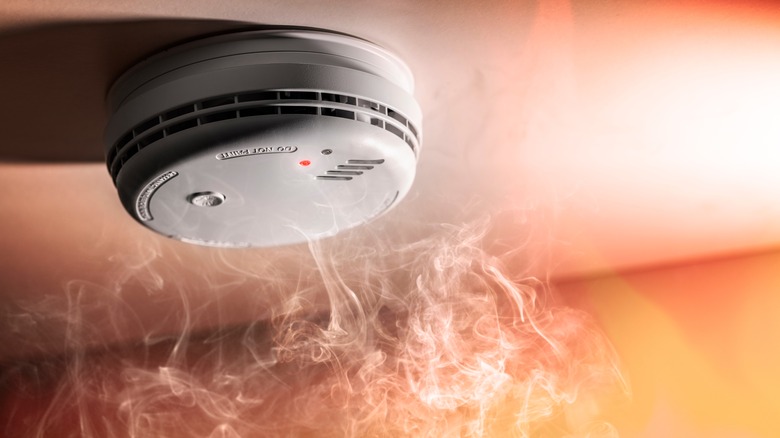How Many Smoke Detectors Do You Really Need In Your House?
Most people appreciate the need for smoke detectors in homes. But when you look at the statistics, the necessity to install and maintain them becomes even more evident. Fire departments respond to more than 340,000 house fires each year on average. Those fires cause thousands of deaths and even more injuries. On top of that, property damage from fires reaches well into the billions every year. The number hit an average of $7.3 billion per year from 2015-2019 alone, according to the National Fire Protection Association.
Cooking and smoking are the leading causes of fires and fire-related fatalities, however, many of those are completely preventable by taking extra care. There are times, however, when you have no control over fires. They can be caused by natural occurrences like lightning or faulty wiring you don't even know about. No matter how a fire starts, you can protect members of your household by making sure you have enough smoke alarms installed in your residence.
The number of smoke detectors you need in your home
Having smoke detectors in a home is the first step in protecting the lives of your loved ones and your property. Having the correct number of smoke alarms, which varies from house to house, is the next step in being fully prepared in case a fire occurs. This means installing them on each floor in a multi-level house, including basements and built-out attics when appropriate. It is also imperative to have smoke alarms installed inside each bedroom. For adequate protection, they need to be mounted outside of sleeping areas as well, as noted by the National Fire Protection Association.
Newer homes have hardwired smoke detectors that are connected so that when one sounds every alarm in the house will trigger. These are installed according to building codes, so regulations for how many are required vary from state to state. Since modern smoke alarms weren't even invented until 1965, many older homes have had them installed since then. When you do an inventory of the smoke detectors around your house, take note of any blind spots. Even with hardwired systems, you can add more alarms where deemed necessary.
More details about installing smoke detectors
When installing your smoke detectors, be sure to situate them correctly. Since smoke rises, it's important to place them on the ceiling or high on walls no more than 12 inches away from the ceiling. If you need to install a smoke alarm in an area with a pitched roof, make sure that it is at least 4 inches below the peak.
Avoid mounting smoke detectors in drafty areas near air ducts, windows, and the like since too much airflow can impede proper operation. In kitchens, they need to be at least 10 feet away from cooking areas (stoves, ovens, toasters, etc.) to avoid triggering an alarm falsely. Some homeowners opt for placing smoke detectors near stairway entries leading up to bedrooms, too. In basements, they should be mounted on the ceiling at the bottom of the stairway (per the National Fire Protection Association.) Once properly installed, your smoke detectors will provide peace of mind for years with proper testing and maintenance.


